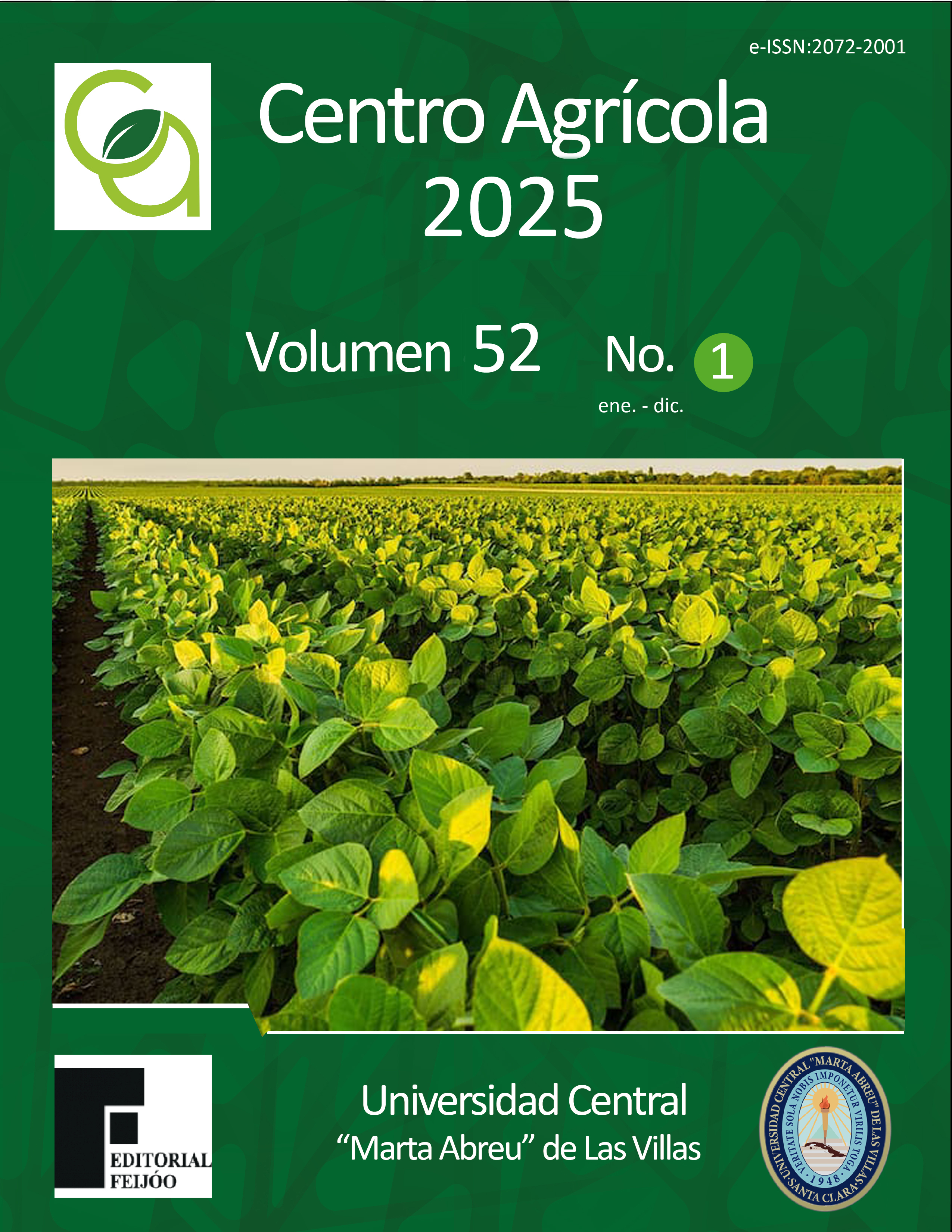CF: cag221232410
COMUNICACIÓN BREVE
Dosis del biofertilizante (Rokohumin mineral) en el desarrollo del pimiento (Capsicum annuum L.)
Doses of the biofertilizer (Rokohumin mineral) on the development of pepper (Capsicum annuum L.)
Duniel Mederos Lastra*
María Isabel Hernández
Dailenis Sánchez Aleman
Instituto de Investigaciones Hortícolas “Liliana Dimitrova” (IIHLD), carretera Bejucal-Quivicán km 33 ½, Quivicán 33500, Mayabeque, Cuba
RESUMEN
Contexto: El objetivo fundamental en la agricultura es satisfacer las necesidades de alimentos y fibras a los seres humanos. El desarrollo óptimo de los cultivos demanda una elevada aplicación de fertilizantes minerales, biofertilizantes y pesticidas, pues estos constituyen elementos básicos imprescindibles para aumentar los rendimientos agrícolas.
Objetivos: Determinar el efecto de la dosis de aplicación vía foliar de Rokohumin mineral en el desarrollo de plantas de pimiento.
Métodos: El experimento se realizó en el Instituto de Investigaciones Hortícolas “Liliana Dimitrova”, Cuba. Se evaluaron cuatro dosis del biofertilizante Rokohumin mineral, aplicación vía foliar en el cultivar de pimiento ‘Clair’. Se empleó un diseño de bloques al azar con cinco tratamientos y cuatro réplicas, los datos obtenidos fueron sometidos a un análisis de varianza (ANOVA) de clasificación simple. Se evaluó la altura de la planta a los 15, 30 y 45 días después del trasplante, el diámetro ecuatorial y polar, la masa del fruto, el número de frutos por planta y el rendimiento.
Resultados: La masa de los frutos y el rendimiento presentaron diferencias significativas entre los tratamientos con valores de 120 g por fruto y 20,74 t ha-1.
Conclusiones: Se observó que a dosis de 3,0 mL L-1 de agua del biofertilizante Rokohumin mineral se obtienen los mejores rendimientos.
ABSTRACT
Context: The main objective in agriculture is to meet the needs for food and fiber for humans. The optimal development of crops demands a high application of mineral fertilizers, biofertilizers, and pesticides, as these are essential basic elements needed to increase agricultural yields.
Objectives: To determine the effect of the foliar application dose of Rokohumin mineral biofertilizer on the development of pepper plants.
Methods: The experiment was conducted at Instituto de Investigaciones Hortícolas “Liliana Dimitrova”, Cuba. Four doses of the Rokohumin mineral biofertilizer were evaluated, applied via foliar treatment on pepper, cultivar ‘Clair’. A randomized block design was used, with five treatments and four replications; the obtained data were subjected to a one-way ANOVA. The plant height was evaluated at 15, 30, and 45 days after transplanting, along with equatorial and polar diameter, fruit mass, number of fruits per plant, and yield.
Results: The mass of the fruits and yield showed significant differences among the treatments, with values of 120 g per fruit and 20.74 t ha-1.
Conclusions: It was observed that a dose of 3.0 mL L-1 of water from the Rokohumin mineral biofertilizer results in the best yields.


